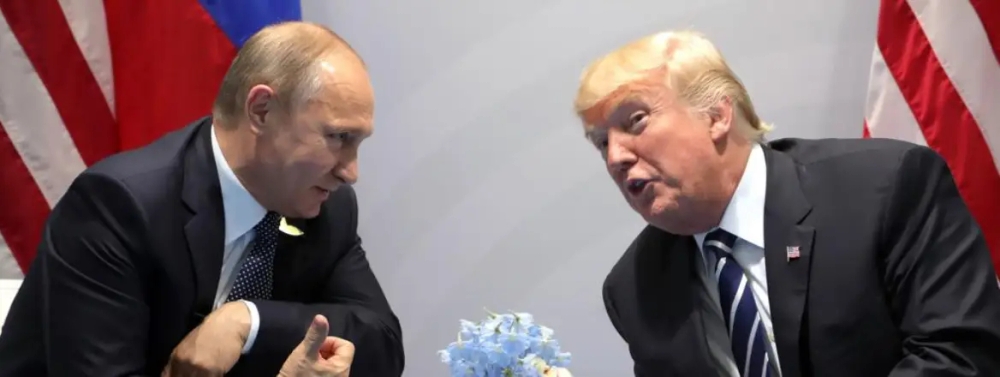Reassessing Russia's Global Strategy: Beyond the Kremlin's Narrative
Published
- 3 min read

Russia’s Geopolitical Gambit: Myths vs Reality
Russia’s narrative of a collapsing Western-led global order and the rise of an egalitarian multipolar system is rooted more in wishful thinking than tangible geopolitical realities. While Russian President Vladimir Putin positions his country as a champion of the “global majority,” the contradictions in this narrative and the challenges to its execution reveal significant gaps in Moscow’s strategic posture.
A Multipolar World: The Mirage of Equality
The Kremlin’s assertion that it represents a “global majority” advocating for multipolarity overlooks a crucial dynamic: the interests of supposed allies are not always aligned with Russia’s vision. Countries like China, touted as key partners, pursue their agendas often at Russia’s expense. Beijing’s Belt and Road Initiative, for instance, enhances its influence in Central Asia—a region Moscow considers its strategic backyard. Far from championing a unified vision of multipolarity, Russia’s efforts often serve as an attempt to counterbalance its diminishing influence in a rapidly changing world order.
NATO and the Myth of Encirclement
Russia’s grievances about NATO expansion are a cornerstone of its geopolitical rhetoric. However, NATO’s growth is not a product of aggressive Western imperialism but a response to the security concerns of Eastern European nations. Countries like Poland and the Baltic states voluntarily joined NATO, seeking protection from a historically assertive Russia. This undermines Moscow’s narrative of an imposed Western hegemony and highlights the preference of its neighbors for integration with the West over alignment with an authoritarian Kremlin.
Ideological Battles: Rhetoric vs Reality
Russia’s ideological framing of its conflict with the West as a struggle against “modern Western liberalism” rings hollow when scrutinized. Domestically, the Kremlin enforces a highly centralized, authoritarian model that curtails freedoms while accusing the West of imposing totalitarian ideologies. Internationally, Moscow’s alliances—such as those with Iran and North Korea—raise questions about the democratic legitimacy of the supposed “anti-Western coalition.”
The claim that the West is embroiled in systemic chaos and decline contrasts sharply with economic and technological advancements in countries like the United States and Germany. Russia’s own economic struggles, exacerbated by sanctions and an overreliance on energy exports, further undermine its credibility as an alternative model for global governance.
The Limits of Hard Power
Russia’s reliance on military aggression to assert its geopolitical ambitions has proven counterproductive. The ongoing conflict in Ukraine has not only strained Russia’s resources but also galvanized NATO and unified the West. The economic sanctions imposed on Moscow, coupled with the costs of sustaining its military operations, have highlighted the vulnerabilities of its economy.
Furthermore, Russia’s nuclear saber-rattling alienates potential allies and reinforces its image as an unpredictable and dangerous power. This strategy risks isolating Moscow further on the global stage, where soft power and economic interdependence increasingly shape alliances and influence.
The “New World Order”: A Misguided Vision
Putin’s portrayal of a collapsing liberal world order is less a forecast and more a reflection of Russia’s insecurities. The so-called “regional and egalitarian arrangement” touted by the Kremlin is unlikely to materialize, given the global interconnectedness of economies and the dominance of Western-led institutions like the IMF and World Bank.
Rather than spearheading an alternative global system, Russia finds itself reacting to Western initiatives. Its economic ties with China, though significant, place Moscow in a subordinate position as Beijing capitalizes on its larger economy and technological advancements to dictate the terms of engagement.
Looking Ahead: A Path to Relevance?
If Russia seeks genuine global influence, it must pivot away from aggressive posturing and ideological grandstanding. By prioritizing economic diversification, fostering domestic innovation, and engaging in constructive diplomacy, Moscow could reshape its role in the international system. A Russia that invests in its people and aligns with global trends rather than resisting them might one day be a credible advocate for a balanced and multipolar world.
In the meantime, the Kremlin’s narratives remain an exercise in deflection—an attempt to mask its own shortcomings while projecting them onto a supposedly decadent West. However, as history has shown, rhetoric alone cannot reshape the global order.
